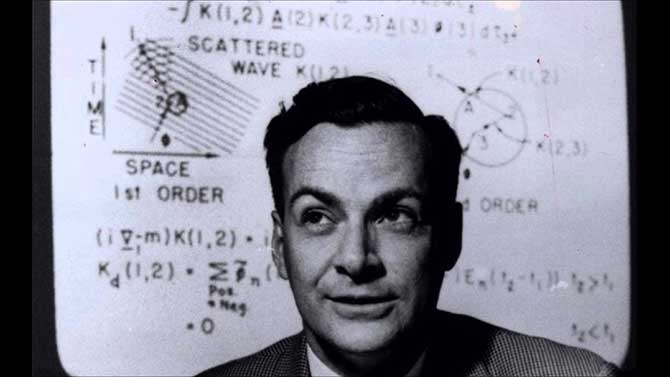“I learned then what science was about: it was patience.”
Richard Feynman – brilliant scientist, fantastic teacher, bongo drummer extraordinaire, practical joker, and a perpetually curious mind – was also well known for articulating his love and passion for science (Surely You’re Joking, Mr. Feynman!, The Pleasure of Finding Things Out). His enthusiasm for the subject and for teaching was legendary, and infectious.
In this speech given at the at 15th annual meeting of the National Science Teacher’s Association in 1966, Feynman expounds on ‘What is science?’, beautifully articulating his love and passion for the subject, as well as what drives his curiosity and his philosophy on teaching.
I think it is very important – at least it was to me – that if you are going to teach people to make observations, you should show that something wonderful can come from them. I learned then what science was about: it was patience. If you looked, and you watched, and you paid attention, you got a great reward from it – although possibly not every time.
As a result, when I became a more mature man, I would painstakingly, hour after hour, for years, work on problems – sometimes many years, sometimes shorter times; many of them failing, lots of stuff going into the wastebasket – but every once in a while there was the gold of a new understanding that I had learned to expect when I was a kid, the result of observation. For I did not learn that observation was not worthwhile.
[…]
When someone says, “Science teaches such and such,” he is using the word incorrectly. Science doesn’t teach anything; experience teaches it. If they say to you, “Science has shown such and such,” you might ask, “How does science show it? How did the scientists find out? How? What? Where?”[…]
It should not be “science has shown” but “this experiment, this effect, has shown.” And you have as much right as anyone else, upon hearing about the experiments–but be patient and listen to all the evidence–to judge whether a sensible conclusion has been arrived at.
Psst! Our free newsletter offers the greatest and the smartest ideas, essays, books and links in one convenient place. The emails you receive will be short, smart, and always interesting. Sign up here >>


